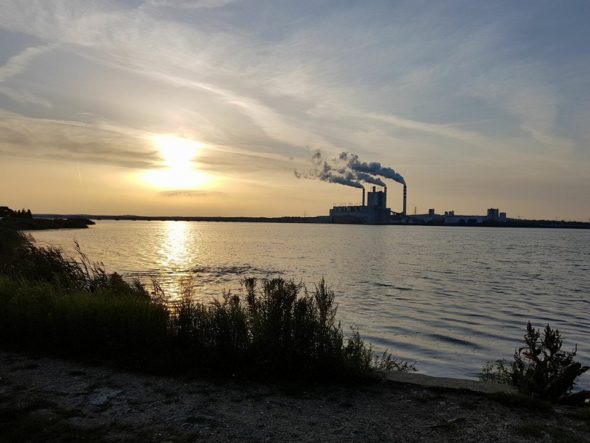The court dispute over the technology of the American Westinghouse with Korea’s KHNP may not end in a settlement that would reconcile the projects in Pomerania and Pątnów – writes Wojciech Jakóbik, editor-in-chief at BiznesAlert.pl.
Meetings with journalists are organized in various formats. The visit of the president of Westinghouse to Poland on April 27 was an opportunity to talk with journalists and ended with a request for authorization. The press law amended in 2018 gives the author of the statement six hours to approve a literal quote for the needs of the newspaper. In result of this procedure BiznesAlert.pl received an authorized response from Westinghouse CEO Patrick Fragman to a question about his company’s lawsuit against KHNP over the intellectual property rights to APR1400 technology. Westinghouse brought the case against KHNP to court, arguing that the export of the APR1400 technology used by the Koreans, proposed by Seoul to Poland, requires an export license from the US Department of Energy due to the fact that it is based on an American solution owned by Fragman’s company. The case is pending in court and may end in a verdict or a settlement.
„We are in a legal dispute with KHNP regarding intellectual property rights. The court will decide whether the Korean side has the right to export technology based on the American AP1000 reactor,” said the president of Westinghouse in an authorized answer to a question from BiznesAlert.pl. The media have also relayed quotes about how the atom in Pątów, which PGE PAK Energia Jądrowa and Korea’s KHNP are talking out, is a virtual project that will never come to fruition. The most important conclusion is that the Americans are not stepping away from the warpath for atom in Poland and are ready to face Koerans. A settlement would end the dispute out of court, but Westinghouse has promised to continue the battle in front of a judge.
In this context, it is worth quoting the statements of the president of Westinghouse in Poland Mirosław Kowalik from the European Economic Congress 2023, whom I had the pleasure to ask about the dispute with the Koreans, because I led a panel on nuclear energy in which he participated. He said that all hands were on deck to sign the Westinghouse-Polish Nuclear Power Plants project agreement in the third quarter of 2023. „It is necessary to secure the issue of licensing, which is made possible by the decision-in-principle, as well as regulatory issues, including local ones, i.e. social acceptance and the infrastructure that needs to be built. Polish Nuclear Power Plants have already submitted an application for technical conditions for the connection of this power plant,” Kowalik stated.
The president of Westinghouse in Poland spoke openly about the technology dispute with the Koreans. „The case is pending in court. We have filed some documents on this matter. This is a matter of intellectual property rights. Dual-use goods, which can be used for military purposes, are subject to strict provisions,” Kowalik explained. „The AP1000 technology was licensed by the US regulator. Its transfer to Korea was subject to export control regulations, and the country that received it must get the approval of the licensing country. It’s the same as with the Leopard tanks. These matters are strictly regulated, and I would not like to say whether the Korean side has modified security-related components. This will be clarified in other instances,” he added. The president of Westinghouse in Poland assured that if there are talks with KHNP about a settlement, the media will be informed. The Koreans have consistently assured that they have already replaced the components that would be subject to U.S. export controls.
The court dispute may make it impossible for the Korean technology to be applied in Poland in the absence of a settlement. PGE PAK Energia Jądrowa wants to have the first reactor in 2035, and therefore can afford only a two-year difference as compared to the schedule in Pomerania. PGE has promised to finalize the location research in Pątów in 2025. This will open the way to next steps. By then, the technology dispute should be resolved.
The settlement is still possible and depends on the political factor. Poles want to wash their hands of this conflict saying that it is a bilateral dispute between Seoul and Washington. However, their involvement may be necessary to reconcile the two projects. Otherwise, if Americans block Pątnów the project’s credibility will be harmed. The Koreans take the project seriously, because they have already hired over a hundred people to work on it.









